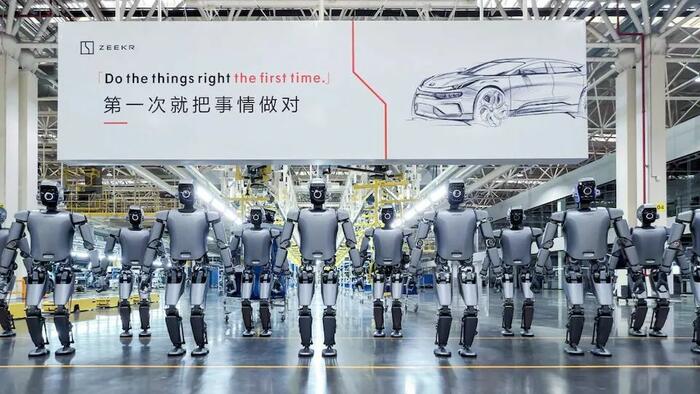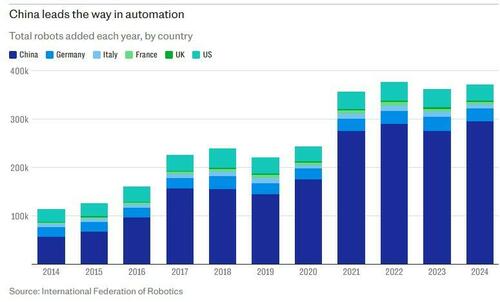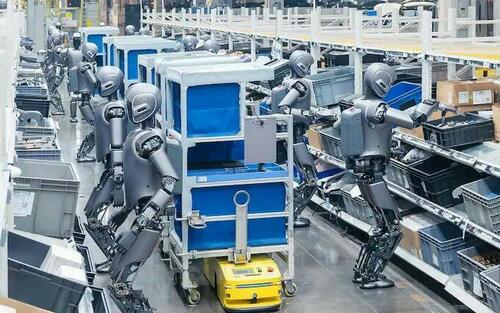


Ford Motor Company CEO Jim Farley and other top business leaders are "terrified" over China’s breakneck technological advancements, warning that the Asian superpower’s innovations could crush American companies if they don’t act fast, according to a stunning report from The Telegraph.
Farley, after touring Chinese factories, was left reeling by the cutting-edge tech packed into their vehicles - including self-driving software and facial recognition systems [zh: yikes] “Their cost and the quality of their vehicles is far superior to what I see in the West,” Farley warned, per The Telegraph.
The Chinese aren’t just outpacing U.S. car companies.
Greg Jackson, head of British energy supplier Octopus, described a jaw-dropping visit to a “dark factory” churning out mobile phones with barely a human in sight. “We visited a dark factory producing some astronomical number of mobile phones,” Jackson told the outlet.
“The process was so heavily automated that there were no workers on the manufacturing side, just a small number who were there to ensure the plant was working. You get this sense of a change, where China’s competitiveness has gone from being about government subsidies and low wages to a tremendous number of highly skilled, educated engineers who are innovating like mad.”
Australian mining billionaire Andrew Forrest scrapped plans to build electric vehicle powertrains after witnessing China’s dominance firsthand. “We are in a global competition with China, and it’s not just EVs. And if we lose this, we do not have a future at Ford,” Forrest told The Telegraph.
Forrest described futuristic factories where robots rise from the floor, assembling trucks with zero human involvement. “I can take you to factories [in China] now, where you’ll basically be alongside a big conveyor and the machines come out of the floor and begin to assemble parts,” the titan said. “And you’re walking alongside this conveyor, and after about 800, 900 metres, a truck drives out. There are no people – everything is robotic.”
The humanoid robotics market could explode into a $5 trillion industry by 2050, driven by supply chains, maintenance, and support networks, with Morgan Stanley analysts predicting a surge in adoption by the late 2030s. Over 1 billion humanoids could be in use by 2050, with 90% in industrial and commercial roles.
Venture capitalist Vinod Khosla, an early OpenAI backer, predicts a robotics breakthrough akin to ChatGPT within two to three years, envisioning robots that can chop vegetables or wash dishes.
China’s Unitree is already dominating, claiming 60% of the global quadruped robot market, leaving American players like Boston Dynamics scrambling to catch up. But there’s hope on the horizon: Tesla’s humanoid bots could give American consumers a fighting chance against China’s robotics juggernaut in the coming years.


